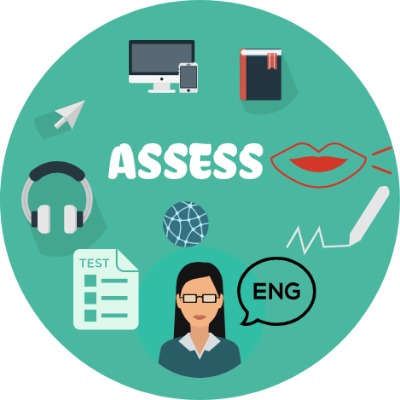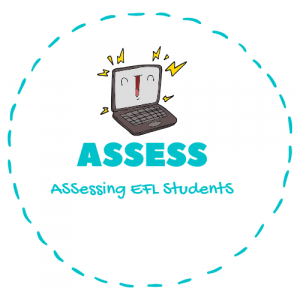ASSESSING EFL STUDENTS
What is ASSESS Project?
The project ASSESS is a project co-funded by the Erasmus+ Programme of the European Union, as a Strategic Partnership for the Development of Innovation in School Education. It aims to define innovative methods and tools for the assessment of EFL learners. Its main goal is to bring new approaches to assessment and contribute to development of evaluation consciousness. It also wants to support restoration of assessment system and share good practices among European countries.
With ASSESS, all the partners will have a chance to promote the specific skills acquisition and skills enhancement for foreign language teachers for:
1) effective teaching and evaluation methods of foreign languages in particular through the use of ICT
2) choice of quality products in language assessment, identifying the best meet the specific educational needs
3) use of products available either as an alternative or as an integration of traditional methodologies
4) creation from scratch of educational and training products that exploit the potential of new technologies
What are we going to develop?
Intellectual Output 1: Report on Curriculum,
Intellectual Output 2: Database for Online Exam Online Creator
Intellectual Output 3: Rating Scale
Intellectual Output 4: Online Exam Creator
Intellectual Output 5: Teachers’ Guidebook
Language Assessment
Assessing the learning of language is a topic that never goes out of discussion. The complexity of the learning process and evolution of learners over the years, contribute a lot to the topics’ evergreen life. The influence of Technology is another factor that the Teachers and Evaluators should consider while assessing the Learners. Therefore, conventional assessing methods needs revising and adapting to suit the new age learning preferences and the learners. This is particularly critical for young students at primary school age group.
Some of the assessment methodologies that typically belonged to a different group may find relevance even while assessing language learning of school students.
Here, we list down some ways of assessment that resorts to the basics.
- Rubrics: Rubrics can cover vast areas of student work. Since rubrics can be defined and administered over a period of time, it can give valuable insights on the learning curve of every student over a period of time. Therefore, Rubrics serve as a valuable tool for Formative Assessment.
- Oral Presentations or Performances: Controlled assessments are the not the only ways of assessing. Multiple Intelligence theory suggests different learners learn through different ways. Assessing them using outdated methodologies does not do justice to the students. Hence, informal ways such as Presentations or Performances can be effective ways.
- Non-verbal: Along the same lines of performances, another great way of assessing is non-verbal assessments such as Charades or Pictures. These are effective ways to assess the vocabulary.
- Informal Written Assessments: Instead of conventional methods like essay writing or short answers, modern and fun ways such as blogs, travelogues, reviews can prove to be equally effective. Many teachers and schools have deployed these already, but only as club activities which are not assessed. Bringing these ways to mainstream and assessing them can provide valuable insights on language learning.
There can be many other ways to assess the students formatively and the ideas can be endless. But the above-mentioned ideas are quick and effective ways which does not demand a lot from the teachers.



